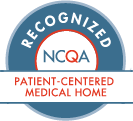RSV Vaccination
9.23.2024
RSV (Respiratory Syncytial Virus) is a very common virus that infects all people from young infants to the elderly. The common symptoms range from a simple 'cold' to wheezing and breathing difficulites ("bronchiolitis"). As with the flu, those at a higher risk for bronchiolitis are infants and young toddlers, and those with underlying medical conditions. Each year RSV causes 60,000-80,000 hospitalizations a year in the U.S., and accounts for 7% of deaths in children 1 month - 1 year, worldwide. In some cases, RSV infection may predispose a child to develop asthma later in life. For such a common infection, it can have serious outcomes.
The RSV vaccine is for all infants younger than 8 months born during the RSV 'season', which is generally October through March. It is given starting on October 1. It is available before a newborn child leaves the hospital, and in our office for those who do not get it in the hospital. It is given only once and should protect a child throughout their first RSV 'season'. The vaccine is called Beyfortus and is a monoclonal antibody.
Additionally, there are RSV vaccines available for pregnant women and adults 60 years and older. Please talk to your health care provider for additonal information regarding theses vaccines.
For more information, please access the links below:



